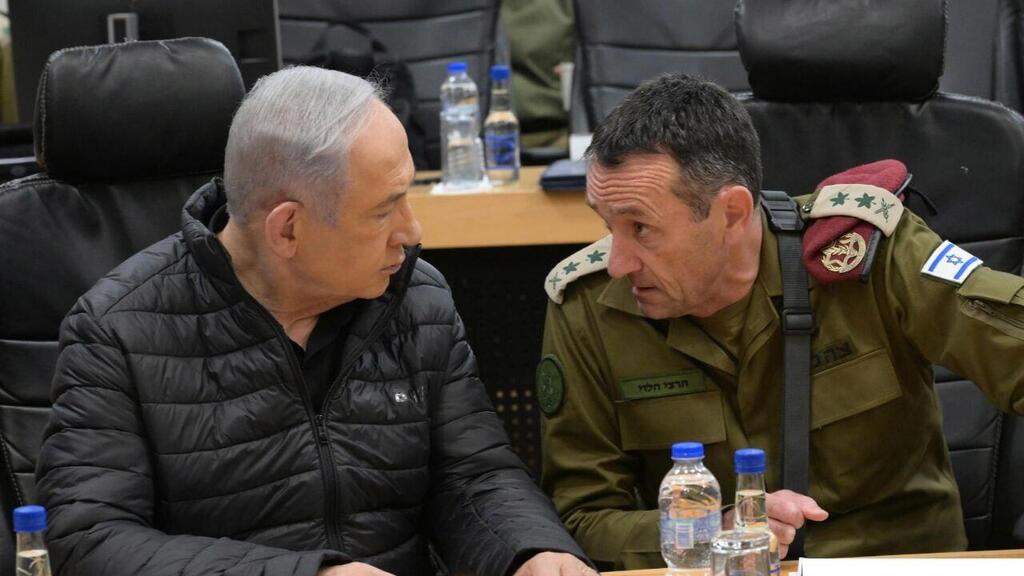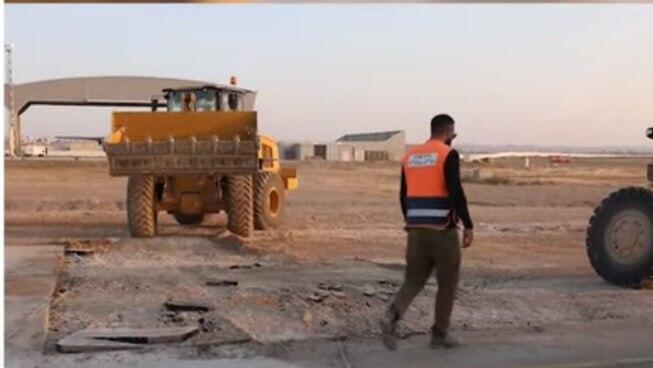Getting your Trinity Audio player ready...
Officials in the IDF favor an attack on Iran in retaliation for its weekend strike on Israel, Ynet has learned. Their position was presented to the political leaders in recent consultations.
A possible retaliatory strike was considered as early as Sunday but would have required a complex operation. "This is not over," IDF senior officers said.
The military sees great importance in building a coalition against Iran. From an operational standpoint, such an international coalition was established within days, led by Israel and the United States, which required joining forces and early detection systems.
2 View gallery


Prime Minister Benjamin Netanyahu with Chief of Military Staff Herzi Halevi
(Photo: GPO)
The IDF hopes to enlist other countries to join the coalition to put Iran in its place - nations that view Iran as a threat to themselves and to world peace, as it nears nuclear capabilities.
The military has a range of plans and, according to foreign media reports, knows how to carry out cyber attacks on critical civilian infrastructure there, target scientists, use drones to strike drone production sites and, of course, launch missiles and airstrikes.
There is also good intelligence, as demonstrated in the exact anticipation of Iran's targets in their strike against Israel, including on the Nevatim Airbase in the Negev, allowing defenses to be deployed in advance.
Some of Iran's missiles were launched at Nevatim and it was the stellar aerial defenses, built over years, and fine tuned in recent weeks, that prevented substantial damage. It was the Arrow system that prevented the base from being destroyed.
But despite that, it was the intelligence failure to anticipate Iran's response to the killing of its senior IRGC member in Damascus earlier this month that led to the Iranian attack, which the IDF now insists must be retaliated against.
The test will come when other senior Iranians are in Israel's crosshairs - those who are responsible for acts of terror against Israel, or for building the capabilities of Hezbollah. Will the military now allow them to be targeted? Time will tell.



